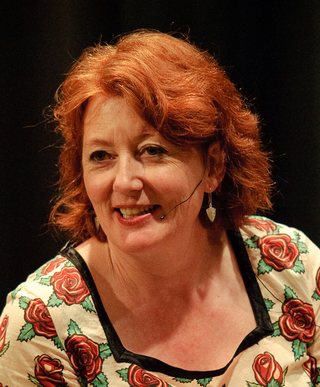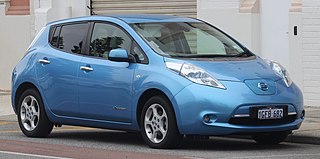
Foodtown was a New Zealand supermarket chain owned by Progressive Enterprises. As with Woolworths, the Foodtown brand was phased out in the late 2000s, with all stores rebranded as Countdown by the end of 2011. Foodtown supermarkets were typically integrated with a shopping centre; the chain had few stand-alone stores.

Countdown was an Australian-owned New Zealand full-service supermarket chain and subsidiary of Woolworths New Zealand, itself a subsidiary of Australia's Woolworths Group. It is one of two supermarket chains in New Zealand, the other being Foodstuffs.

NZ Post, shortened from New Zealand Post, is a state-owned enterprise responsible for providing postal service in New Zealand.

Winston Raymond Peters is a New Zealand politician who has been the leader of New Zealand First since it was founded in 1993. He was re-elected for a fifteenth time at the 2023 general election, having previously been a member of Parliament (MP) from 1979 to 1981, 1984 to 2008 and 2011 to 2020. Peters has served as the 13th deputy prime minister of New Zealand and 25th minister of foreign affairs since November 2023.
New Zealand First, commonly abbreviated to NZ First or NZF, is a political party in New Zealand, led by and identified with veteran politician Winston Peters, who has served three times as deputy prime minister. The party has formed coalition governments with both major political parties in New Zealand: with the New Zealand National Party from 1996 to 1998 and 2023 to present, and with the New Zealand Labour Party from 2005 to 2008 and 2017 to 2020. New Zealand First currently serves in a coalition government with both National and ACT as part of the Sixth National government, having won 6.08% of the total party vote in the 2023 New Zealand general election.

NZ Bus is New Zealand's largest bus company, operating in Auckland, Tauranga and Wellington. Formerly a subsidiary of Stagecoach Group and later Infratil and Next Capital, it is now owned by Kinetic Group.
Farmers Trading Company Ltd is a New Zealand mid-market department store chain. Headquartered in Flat Bush, Auckland, Farmers operates 59 stores across New Zealand, specialising in family fashion, beauty, homewares, furniture, large appliances and whiteware.

Briscoe Group is a New Zealand retail chain. It has 92 stores throughout New Zealand trading under the Briscoes Homeware (48) and Rebel Sport (44) nameplates. The company was founded in 1861 in Dunedin, New Zealand, providing wares to gold miners. Profit in 2022 was $88.4 million. It has 2,300 staff in 90 stores.

The Capital Connection is a long-distance commuter train operated by KiwiRail between Palmerston North and the capital city of Wellington on the North Island Main Trunk.
The Ministry of Social Development is the public service department of New Zealand charged with advising the New Zealand Government on social policy, and providing social services. MSD is the largest public service department, employing public servants in over 200 locations around New Zealand. MSD delivers its programmes and services through a number of business groups and agencies.
Grey Power is a New Zealand-based lobby group that promotes the interests of people over the age of 50.
The go card is an electronic smartcard ticketing system developed by Cubic Corporation, which is currently used on the Translink public transport network in South East Queensland, Australia. To use the go card, users hold the card less than 10 cm away from the reader to "touch on" before starting a journey, and must do the same to "touch off" the service at the end of the journey. The cost of each journey is deducted from the go card balance.
NZ Transport Agency Waka Kotahi (NZTA) is a New Zealand Crown entity tasked with promoting safe and functional transport by land, including the responsibility for driver and vehicle licensing, and administering the New Zealand state highway network. Waka Kotahi means 'one vessel' and is intended to convey the concept of "travelling together as one".

Opal is a contactless smartcard fare collection system for public transport services in the greater Sydney area and most other urban areas of New South Wales, Australia. Operation of the Opal system is managed by Transport for NSW. First launched in late 2012, Opal is valid on Transport for NSW's metro, train, bus, ferry and light rail services that operate in Sydney and the neighbouring Central Coast, Hunter Region, Blue Mountains, Illawarra and Southern Highlands areas. Opal equipment was designed from the start to support a variety of cards, but launched with the captive Opal cards.

Julie Anne Genter is an American-born New Zealand politician who is a member of the House of Representatives representing the Green Party of Aotearoa New Zealand. Genter was elected to each Parliament from 2011 to 2023 on the party lists, before being elected as the Member of Parliament for the Rongotai electorate in the 2023 election. She served as the Minister for Women, Associate Minister for Health and Associate Minister for Transport during the first term of the Sixth Labour Government. She holds dual citizenship of New Zealand and the United States.

Margaret Mary Barry, generally known as Maggie Barry, is a New Zealand radio and television presenter and politician.
Generation Zero is a youth-led organisation in New Zealand focused on transitioning society away from its dependency on fossil fuels and combating climate change.

The Sixth Labour Government governed New Zealand from 26 October 2017 to 27 November 2023. It was headed first by Jacinda Ardern and later by Chris Hipkins, as Labour Party leader and prime minister.

The initial adoption of plug-in electric vehicles in New Zealand was supported by New Zealand Government policies, including monetary incentives such as electric vehicle discounts, exemptions from road user charges, and electric vehicle sales targets. By 2023 year-end, there were 106,942 registered plug-in electric vehicles in New Zealand, consisting of 76,550 battery-electric vehicles (BEV) and 30,392 plug-in hybrid vehicles (PHEV), together making up 2.2% of the national fleet of 4.8 million vehicles. In 2023, 27.2 percent of all new car registrations were plug-in electric vehicles.

The Land Transport Amendment Act 2023 is a New Zealand Act of Parliament that amends various legislation to end the Clean Car Discount by 31 December 2023. The Clean Car Discount programme had been introduced by the previous Sixth Labour Government to encourage New Zealand consumers to buy electrical and hybrid vehicles through a tax on high-emissions vehicles such as utes. The Clean Vehicle Discount Scheme Repeal Amendment Act was introduced and passed into law under urgency on 12 December 2023 by the National-led coalition government. It received royal assent on 19 December 2023.













